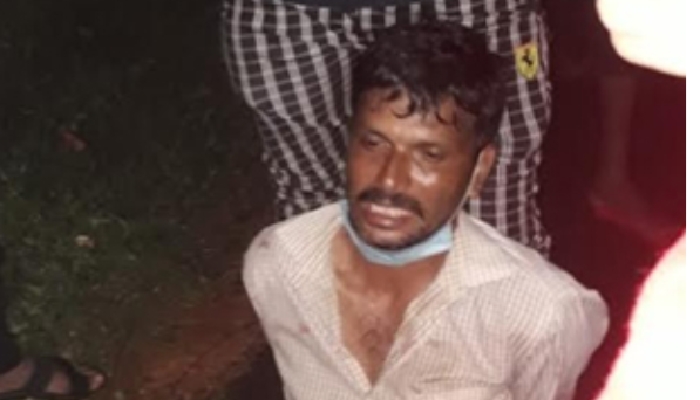Kannur, Mar 24: A country-made bomb, which was hidden inside the compound of a house of a local RSS functionary, exploded prematurely at Naduvil under the Kudiyanmala police station limits in Kannur district of Kerala yesterday injuring at least two children.
The injured have been identified as Gokul, 7, son of RSS functionary M. Shibu, and his relative Kajinraj, 12, son of Kumar. They had come to their relative Shibu’s house where the incident occurred around 1.30 p.m.
The police said the children who suffered serious burns were admitted to a private hospital here.
According to the police, the crude bomb that was hidden beneath a heap of rubble on the compound of the house exploded when the two children were searching for some materials for making a bird cage.
“As soon as we got the information of the blast, we rushed to the spot and raided the house of Shibu,” Kudiyanmala sub-inspector P Pramod said when contacted over phone.
The police unearthed bomb-making materials, including 3 kg of aluminium powder, 600 gm of gunpowder and fuse wire, as also seven swords, a hand axe and an iron rod, he said.
The police suspect that Shibu’s house is being used as a place for hiding bombs, bomb-making materials and weapons. The police strengthened the vigil in the area in the wake of the incident.





Comments
NIA might be busy in campaigning for BJP.
RSS peo0ple are busy nowadays making bombs and ammunitions to create riots at the time of election to make benefit to bjp during election. Police should raid every office of RSS and homes + shops + godown of RSS members to ammunitions + bombs. RSS is supply these things all over India. We smell there will be big scale of disturbance before election. EC should take note of this seriously.
Add new comment